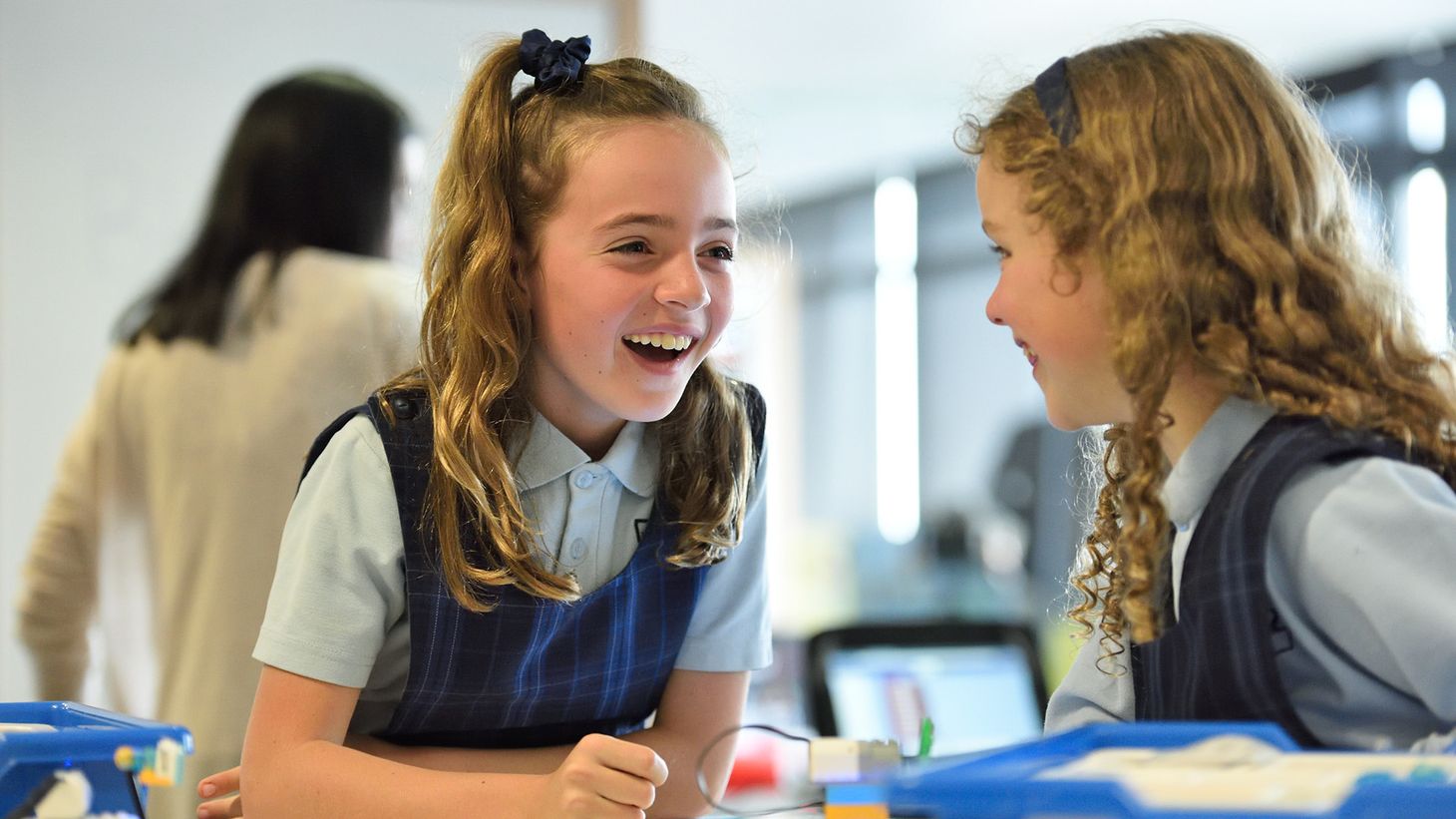While there’s no official checklist for school readiness, there are a few traits and behaviours you can look for when it comes to your child starting school.
Deciding if your child is ready for school can cause you anxiety, especially if your child’s birthday happens to make them a particularly young starter. However, the beauty is, each child’s learning journey is unique. So, while there’s no official checklist for school readiness, there are a few traits and behaviours you can look for when it comes to your child starting at either preschool or primary school.
What school readiness means
What’s the first thing that pops into your mind when you think of school readiness?
For many, it’s literacy and numeracy skills. However, childhood development happens both inside and outside of academia.
Learning centres are not just formal environments. Learning centres can exist at home, at the shops or on a family holiday. All of these experiences contribute to your child’s social and emotional development, physical skills, thinking skills, learning and development, ability to follow instructions and gross motor skills.
These collective experiences enhance a child’s ability to successfully transition from preschool (or kindergarten) to big school (see our guide below on terminology).
Now, all of this might seem like a lot. So, before you allow questions about your child’s school readiness to stress you out, we’ll share some clear things that will give you a better picture of your child’s development.
But first, let’s take a look at the different types of education that are available.
What are the different types of childhood education and care?
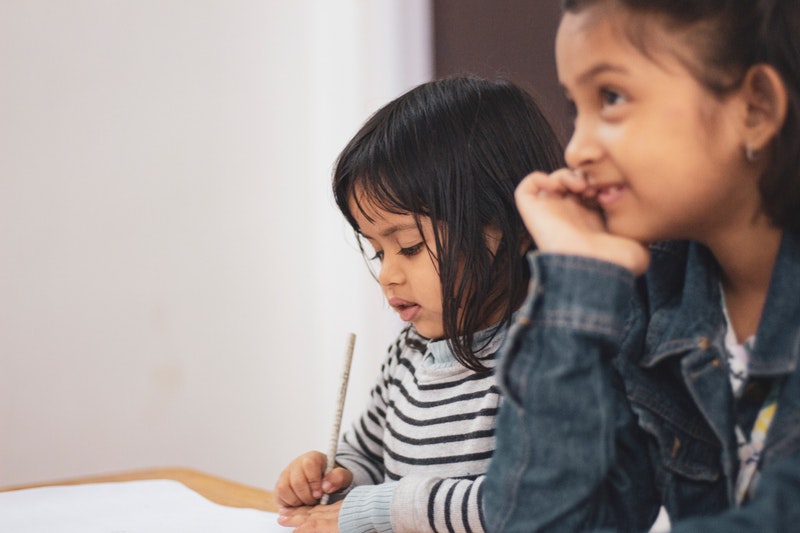
In making your decision about your child’s starting age, there can be two challenges: understanding the age requirements and understanding the lingo.
Australia
There are varying requirements for Australian children according to each state’s Department of Education and understanding the lingo around school readiness can be challenging. The meanings of terms like “kindergarten”, “preschool”, “prep” and “reception” can vary from state to state in Australia, and each state has its own requirements when it comes to school starting age.
In New South Wales, for example, you can enrol your child in preschool if they turn four before August 1 in the year before starting school. The first year of school is called kindergarten, and children can start at the beginning of the school year if they turn five on or before July 31. Ultimately, all children must be in compulsory schooling by their sixth birthday.
You can review each state’s requirements at the bottom of this article.
New Zealand
Over in New Zealand, things are slightly less confusing. The New Zealand Government subsidises all children who attend early learning services for up to six hours a day (a total of 30 hours per week), up until children go to school or turn six. They fully fund the first 20 hours per week for three and four-year-olds. There are no term breaks in the ECE system, so they also work through school holiday times.
Your child can start school between the ages of five and six. You must enrol them in school or in home education by their sixth birthday. Once your child starts school, they must attend it every day.
Is there such a thing as “preschool readiness”?
Just as infants and toddlers moving to middle childhood marks a significant change, moving your child to preschool can be impactful for them as well.
If your child is transitioning from daycare to preschool, you should note that this type of learning experience is more focused on your child developing school readiness skills to help in the transition to full-time school.
Many preschools run the same schedule as primary schools. This means your child should have the endurance to make it through a school day. They should also be comfortable being separated from their caregiver and be ready to begin their day at the school start time. (Take note that sometimes, preschools want children to be fully toilet trained. However, this is something you can discuss with the preschools you are considering.)
What does primary school readiness require?
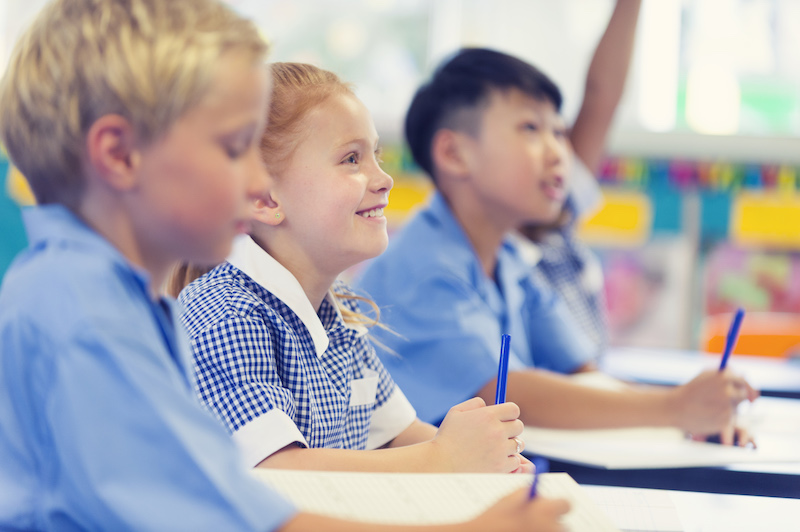
Most times, in discussing school readiness, we talk about primary school, because primary school entry introduces a new learning environment. The expectations are also greater than those in daycare and preschool. There is a wide range of skills your child should have as they transition into “big school”. They fall broadly into four areas, according to Helen Davis, the principal of Eastwood Public School. They include:
- Practical skills
- Cognitive skills
- Social skills
- Physical skills
1. Practical skills
There are many practical things you can look out for to give you signals that your child is gearing up for “big school”.
No longer napping
Make sure your child can go the whole day without taking a nap. Even if kindergartens include nap time, it’s still important to make sure that they are on their way to a nap-free day.
Food and drink
Parents often overlook checking if their child can open and close their lunchbox and drink bottle. In the weeks leading up to the big day, get them to eat out of their lunchbox and drink from their bottle so you can keep an eye out for any potential snags.
Similarly, get your child used to their new school’s eating routines ahead of time. If they’re at home with you, practise feeding them at the same times as school, including morning and afternoon snack breaks.
Eat independently
Your child should be able to eat their meal without special supervision. Your child will be expected to eat their food independently, along with regular snacks throughout the day.
Dress themselves
Can your child dress themselves, especially put on or take off jackets, jumpers or hats? Help your child out by buying shoes that are simple to fasten, such as those with Velcro straps. Also, make sure all their clothes fit well.
Know and say their name
There are several basic linguistic skills to watch out for, too. Children should possess some language skills and be able to say their own name in their native language. This will be helpful for a wide range of school activities, including introducing themselves to their new school friends.
It’s just as important that they recognise their own name in their native language, as responding to roll call and engaging with new friends in the playground will become common occurrences.
2. Cognitive skills
There are a few skills your child should have when it comes to their thinking abilities. Knowing these things improves school readiness. It may also give them a little bit of a head start as they set out on their new learning journey. With that being said, don’t worry too much because the learning framework at the school will be set-up to cover the skills your child needs to acquire. Helen points out a few skills your child should possess for school:
Write the first letter of their name
While no-one expects children to start school with perfect writing abilities, it might be worth checking to see if they can at least write the first letter of their own name in their native language. This simple exercise is a great insight into whether your child is ready for the many writing lessons that will be coming their way throughout those early school years.
If you want to give your child a little head start, you can help them develop their fine motor skills, which they’ll need for writing.
Learning difficulties
Although sometimes it’s hard to gauge until your child has started school, if you’re aware of any learning difficulties your child may have, be sure to get documentation from your GP, paediatrician or psychologist. This will allow their teachers to give them the support they need from the start of the year. They can then develop specific learning outcomes for your child in accordance with their needs.
3. Social skills
One of the biggest reasons for sending your child to school, besides learning, is for the social interaction. With your child starting school, what skills do they need to ensure their social and emotional wellbeing?
Communicate well
Your child should be able to express themselves and clearly communicate if they need help, are hurt or feel sick. They should be able to use words to communicate their emotions, rather than body language. In order to make this happen, your child needs to be comfortable interacting with a range of adults—not just their immediate family. If your child comes from a home where English isn’t the first language, find out if your child will have access to teachers who speak their native language.
Willing to be separated from caregiver
While some initial separation jitters are natural and expected, if your child cannot be happily separated from you or other family members for any length of time, it might be worth reassessing if they’re truly ready. Nurture a positive attitude towards schooling by pointing out all the exciting parts of “going to big school” and reassuring your child that you will see them at the end of each day. Encourage strong and respectful relationships with the childhood educators who are already in their lives to give them a point of reference for what their experience will be like in primary school with new teachers.
4. Physical skills
Learning to gain control over their body is an important skill for your child to develop as they’re preparing to transition to school. A couple of skills that will benefit them are:
Toilet training
Ensure your child is toilet trained and can go to the toilet independently. This includes the ability to pull up their own pants and wash their hands by themselves. Toilet training can vary wildly from child to child, so don’t feel discouraged if yours isn’t quite there yet.
Sit still
Another key trait is the ability to sit still on a chair, at a desk and on the floor for at least 10 to 20 minutes. During school, children are expected to stay in one place for longer than they do at home, and it can often take some adjustment.
Preparing a school readiness program for your child
As you’re monitoring the development of your child’s practical, cognitive, social and physical skills, Helen suggests you can use a few tips and tricks to make the whole process run a lot more smoothly. A lot of tasks might seem simple to our adult brains but can actually be quite challenging for young children.
Logistics
Closer to the big day, make sure your child understands where they need to go and at what time. Discuss where you will pick them up. Visit the pick-up spot the day before or the morning of so they are familiar with what to do. Explain that the teachers will help and look after them during the day, and that the school can call mum or dad if there’s an issue.
Orientation
Visit your school’s transition program to meet other children and families.Get to know teachers and other members of staff. This will not only help familiarise your child but put your mind at rest too. This is also a great time to discuss any specific needs your child might have and iron out any potential sticking points.
Continue to prepare them
Getting your child ready to start school shouldn’t stop the day they pass through the door. Settling in takes time, so try and continue the journey even once they’ve started. Help your child understand ideas around working together. Give them the opportunity to understand they are part of a family and community. Try taking them on outings. Expose them to new things and make learning fun and contextual.
Teach them about money and change at the supermarket. Teach them to recognise letters on signs and licence plates when driving. Look at animals at the zoo, and practise talking to new children when you’re at the park to develop their social skills.
School readiness for children and their families
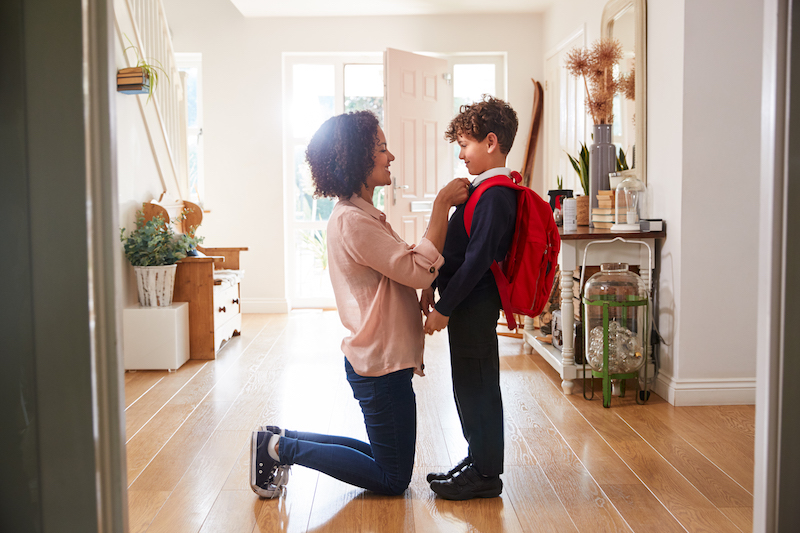
In addition to the above activities, there are many tools families can use to help create a healthy sense of anticipation in their child for the start of school, such as television.
Although the subject of screen time and children can be a bit controversial, some studies have shown that, “quality children’s television can be beneficial to a child’s development and learning. In one study where children had limited access to preschool education, their viewing of a quality preschool, educational program was found to increase their skills and their school readiness in just three months”.
After 30 years of research, it was shown through a Georgetown University study that “Sesame Street has been successful in enhancing school readiness, academic achievement, pro-social behaviour and social skills, including contributing to children’s understandings of complex issues such as death, love, marriage, pregnancy and race relations.”
And the data seems to suggest similar results in Australia. In 2017, the Australian Council for Educational Research released an animated television series called Little J & Big Cuz, featuring Indigenous Australians and their culture to help “support successful transitions to school for young Aboriginal and Torres Strait Islander children.
Explaining the rationale for the series, chief executive of SNAICC—National Voice for our Children (SNAICC), Gerry Moore said, “Extensive research shows a child’s formative early years are a critical predictor of their successful transition to school and life-long education and employment outcomes.
“Currently Aboriginal and Torres Strait Islander children in Australia are twice as likely to be identified as developmentally vulnerable, but they are only half as likely to access important early years education. We know for a fact that a focus on change in the early years is fundamental to closing the gap, and we welcome the emphasis Little J & Big Cuz places on this critical time and the positive light it shines on our kids,” Mr Moore said.
Working together to prepare your child for school
Parents, families and communities can work together to make the integration into school as easy as possible for the child. The first day of school is an emotional time for everyone, including a child’s family. While it might be difficult, try your best to control your own emotions. If your child sees you upset, this might trigger their own tears. Remember: things will get easier, it just takes time.
The fact that you’re here researching shows you have a perfect level of involvement. Parental engagement is a factor of success for children as they’re transitioning into school.
So get ready!
Now is the perfect time to start preparing for what might feel like the biggest decision in your child’s life.
Free printable: School starting schedule
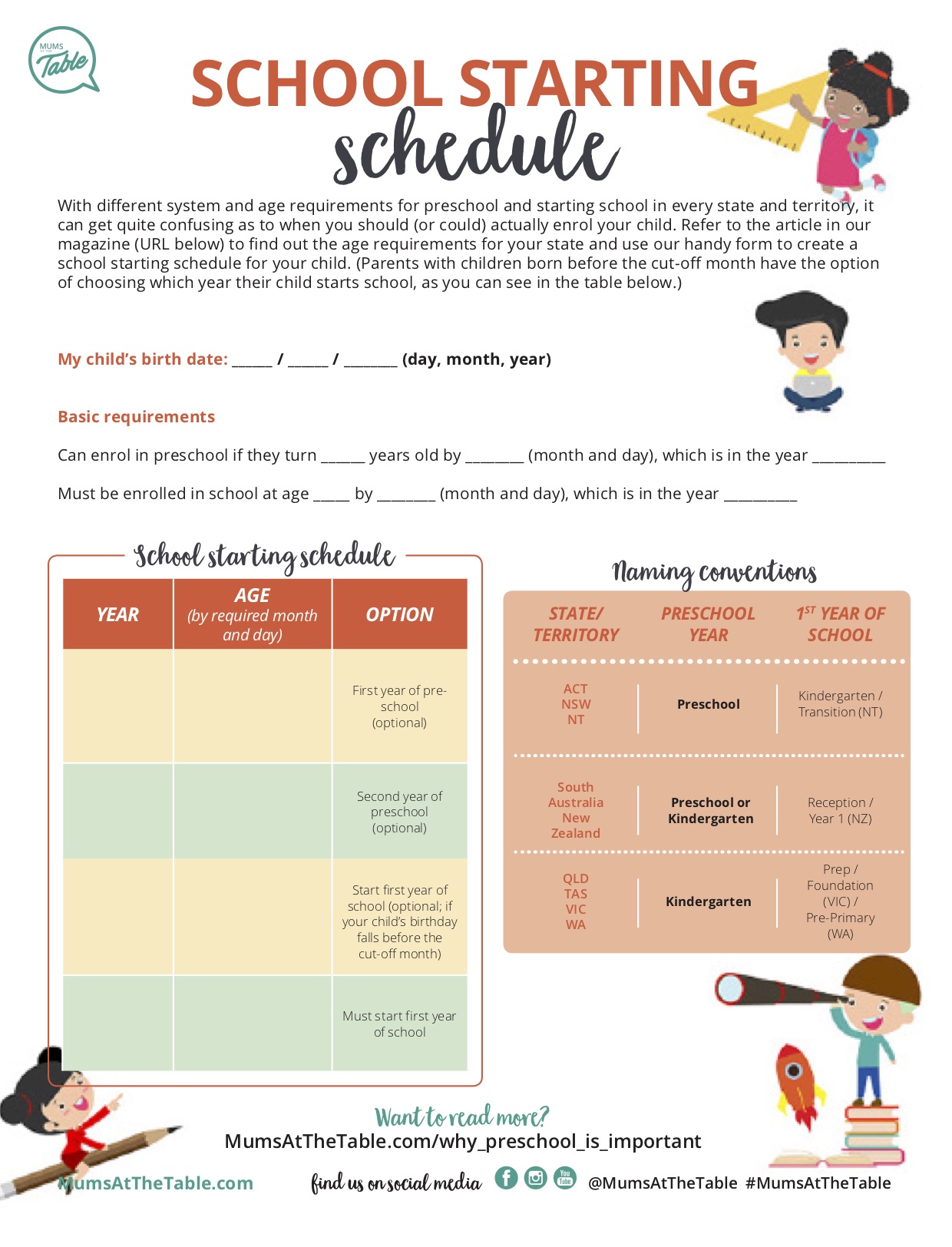
How helpful was this article?
Click on a star to rate it!
0 / 5. 0
Be the first to rate this post!
Rachel Lemons Aitken
Related posts
Subscribe
Receive personalised articles from experts and wellness inspiration weekly!

